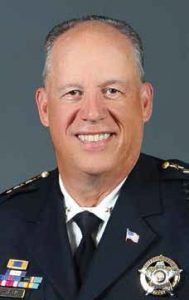Español Français Português عربى |

“Culture is to recruiting as product is to marketing.”
I overheard this said the other day and could not help but share the idea with the rest of you, seeing as how fitting it is to the theme of this issue of Police Chief. All too often, the notion of culture gets lost within our everyday responsibilities, and it is time we refocus on the topic.
While respective agencies and regions may experience challenges unique to them, the field of law enforcement is broadly experiencing a recruitment and retention crisis. We struggle to find the right people—and, when we do get those people, we sometimes find it challenging to keep them.
Nearly every chief I speak to around the globe is facing some level of difficulty related to recruitment and retention. The reasons for this are stratified and varied—some are beyond the control of police leaders, and some are not. While
it is easy to identify the problem, at times we struggle as a field to adopt workable solutions.
One in-house, homegrown approach for the current recruitment and retention crisis we are facing is for all command-level leadership to cultivate and promote a positive and sustained culture within an agency. While building a healthy organizational culture might not solve every challenge, it creates the foundation upon which we can attract potential recruits and incentivize those recruits and our existing workforce to stay.
We must remember that this culture is not just internal. Our communities are also aware of the work we do. They are especially attuned to the commitment of agency leadership to do good work and to serve the public. Such an awareness directly impacts how potential recruits view the agency and the job, possibly making or breaking whether an individual applies.
As part of our efforts in this area, the IACP established a Women in Policing Task Force to look at gender diversity within recruitment, retention, and promotion. During its first meeting in February 2020, the notion of culture was deeply explored throughout the entirety of the session. This culture shines within our recruitment practices, from the look and feel of our ads to the demographical makeup of our recruitment teams. Our culture demonstrates, to both our agencies and the public, what we value and how we narrate our story. So too does it shape our success in retaining our workforce. Culture is the backbone of how we develop, and educate our officers, how we show our respect for diversity and new ideas, and how we communicate our vision for the future. A healthy culture fosters growth, ideas, and innovation, and it makes recruits eager to be hired or reminds existing officers of why they joined the force.
There are powerful influences on our organizational culture that we cannot overlook. As a police leader, I urge you to take the time to look at how your agency’s policies and practices are shaped by the culture of the agency. What are the items visible in your agency that reveal who you are and what is important to you and your colleagues? What is on your bulletin boards? How is roll call conducted? What are the climate and daily discussion? What are the types of energy, creativity, engagement, and teamwork on display in your agency?
If you are not satisfied with how things are being portrayed, take the time to change them now. One of the most important concepts discussed within the Women in Policing Task Force meeting was the value of a leader. Practice what you preach. Make it known what you stand for. Be intentional in the way you shape your agency’s culture. This focus will pay dividends in the long run, especially in relation to who you are able to recruit and how long you are able to retain them.
Practice what you preach. Make it known what you stand for. Be intentional in the way you shape your agency’s culture.
A chief’s job is never easy. When I consider what it means to be a police chief, a thousand things come to mind—duties, roles, and expectations. But perhaps the most important duty I have, outside of keeping my officers and the public safe, is to foster and promote a strong and healthy culture within my agency.
We should consider building or improving police culture to be an empowering goal. Achieving it puts us in the driver’s seat to create our own narrative and to improve upon the public sentiment surrounding law enforcement.
How we define our outlook not only determines whether or not an agency sinks or swims, but it also tells the world how we would like to see the field of law enforcement grow into the future.


